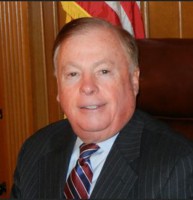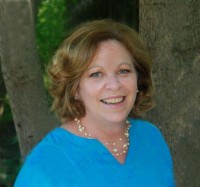Putnam County Leg. District 6 Race: Gross vs. Sloat
 Republican Legislator Roger Gross, who is seeking to be elected to the District No. 4 seat he was appointed to fill last year, is being challenged by Democrat Cathie Sloat in the Nov. 6 general election.
Republican Legislator Roger Gross, who is seeking to be elected to the District No. 4 seat he was appointed to fill last year, is being challenged by Democrat Cathie Sloat in the Nov. 6 general election.
Gross also will appear on the Conservative and Independence Party lines on the general election ballot.
Sloat has lived in Southeast for more than seven years and several decades ago, lived in Mahopac for a time. Gross moved to Southeast in 1993.
Both Gross and Sloat have run for elective office before.
Gross served for three terms on the Brewster School District Board of Education and one term on the Southeast Town Board. Last year, he won reelection to that seat, but vacated it to be appointed to the legislature.
Sloat was unsuccessful in a run last year for a seat on the Southeast Town Board.

Gross is a veteran of the Vietnam War, having served three years in the active U.S. Army and later serving 22 years in the U.S. Air National Guard. Gross went on to teach social studies at Brewster High School for 32 years; for a time also serving as department head.
Gross said he was inspired to run for a full term on the legislature after having experienced one year of representing the people of District No. 4.
“I like a challenge,” Gross said. “I like to be able to serve my community at that level.”
Gross said he spoke frequently with Southeast Town Supervisor Tony Hay about the town’s needs.
“The key is to remain connected to the community,” Gross said.
Sloat said she was inspired to run for the District No. 1 seat, in part, to provide residents with a real choice at the ballot box.
“We need checks and balances on all sides and we need people to work for us on the county level,” she said.
Sloat, who began her work life in sales and marketing, has owned and operated a small business for the past 16 years, fabricating custom-sewn items for decorators and retail shops.
Sloat has been a trustee on the Landmarks Preservation Society. She also is a trustee on the Milltown Association, through which she worked to defeat a more than $3.5 million bond referendum for a firehouse substation.
“It took a lot of…ground work, but we did it,” she said of the 2-1 vote rejecting the referendum.

Gross said in the coming years, the legislature will have to focus on fostering clean-growth development through a “revved up” county planning department; dealing with the great expense of MS4 requirements imposed by the federal government on communities in the watershed to mitigate phosphorous in storm water run off; and remaining underneath the two percent tax levy cap during budgeting.
“The amount of foreclosures and unemployment is serious in our area,” Gross said of the need to mitigate tax increases.
Sloat said the top priorities for the county would be finding a way to manage the ever-increasing costs of employee benefits, fostering smart growth through careful planning in order to expand the commercial tax base and to create well-paying jobs.
“We need to look at getting more corporations to come in. We have a great work force in Putnam County,” Sloat said. “Retail stores are great but you can’t live in this area and work full-time at a store.”
Instead of just meeting the tax levy cap, Sloat said she hoped tax increases could be kept even lower than two percent.
Both Gross and Sloat said they would like the county to share sales tax revenues with the towns.
Gross pointed out the large percentage of commercial enterprise on the Route 22, Field’s Lane and Route 312 corridors in Southeast.
“They really are the engine of Putnam County,” he said. “They provide tremendous sales tax revenue.”
Sloat said she understood the objection to sharing sales tax, in part, because the county was responsible for making towns whole when property taxes went unpaid, but still believed there might be a way to do it.
“I think that there is a way to work it so that once the county has met expectations that a proportion can be given back to the towns,” Sloat said.
Regarding a recent discussion regarding the residency requirement for the county planning commissioner post, and the possibility of removing it, both Gross and Sloat said the requirement should remain and both candidates suggested the position also could be filled by someone who is willing to move into the county within a designated period of time.
On the issue of the county bonding for vehicle replacement, Gross said he understood the need to do so, but hoped the county would follow the lead of the Southeast highway department and look into purchasing slightly-used surplus vehicles at auction that could be had for a fraction of the cost of new trucks.
Sloat said she wasn’t entirely opposed to bonding, but hoped the county could incrementally put money away for big ticket items like vehicles by creating line items in the annual budget.
“Simply bonding is kind of like having a credit card,” she said. “The interest may be very minor but you are still paying more.”
Gross said he hoped voters would choose him on election day based on his longtime connection with the community.
“I’m there. I’m retired. It’s a part-time job but I am in the office most every day of the week. I’m available. I want to continue to be very accessible,” Gross said.
Sloat, who described herself as a “fiscal conservative” said she was just like the people she was seeking to represent and would be a voice for them on the legislature, if elected.
“I am hard working…and I can relate to people who are hard working…and want to stay in the county,” Sloat said. “I want to be able to stay here when I retire and not have to move out.”

Adam has worked in the local news industry for the past two decades in Westchester County and the broader Hudson Valley. Read more from Adam’s author bio here.

